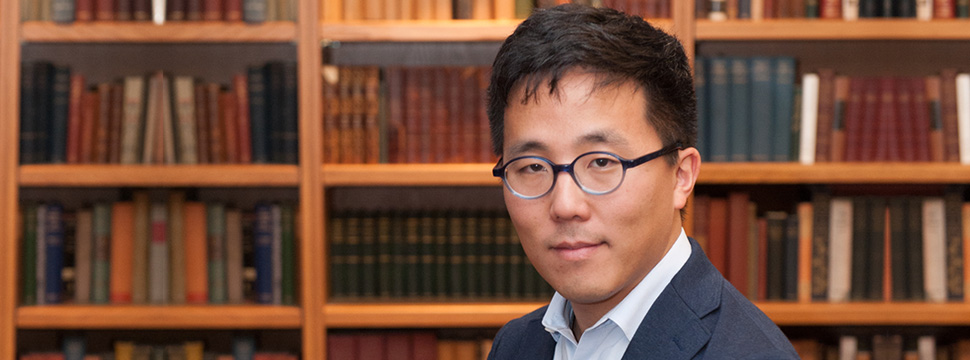-Part of a special feature on literary translation
“Translation expands the audience for a text that might otherwise have been forgotten.”
With his focus on translation of non-contemporary writing, it’s clear that for English professor Andrew Leong, translating an otherwise forgotten text means recovering overlooked lives and cultures of the past.
Leong dabbled in translation in graduate school, but his work began in earnest when he joined Northwestern’s faculty in 2012. During his first year in Evanston, in addition to his literary criticism and academic writing, Leong translated Japanese-American author Nagahara Shōson’s Lament in the Night. The collection of two novellas, both set in 1920s Los Angeles, is dark, gritty and reflective of some of the struggles of Japanese-American communities.
Sometimes in translation, past and present collide. After publishing Lament, Leong received a letter from an elderly man. Leong had translated the Japanese word densha, or electric car, as train. But this man, who lived in Los Angeles in the earlier part of the 20th century, knew the more accurate translation was “street car.”
“Those are the kinds of things that come out of translation that I think are part of the fun, but also the risk of it,” Leong says, equal parts humbled and grateful for the correction. “A translation that might work in one historical period really doesn’t work when you’re thinking about a different time. Translation provides a means to discover exactly how life was lived.” Translation has helped me appreciate that cultures are not homoegenous or consistent across all time and space.”
Leong says that the novellas “helped me see how translations of past works can open up doors to interaction with communities in the present,” and put him in touch with an active community of Japanese-American writers.
Translation can also be the first and most important step in literary critique. There is a common misconception, Leong says, that Japanese-American literature “began” after World War II. But his translation of Lament helped shed light on a vibrant early 20th century Japanese-American literary tradition.
“Typically, when professors teach Japanese-American literature, they start with John Okada’s No-No Boy, which is sometimes called the first Japanese-American novel,” Leong says. “That ignores all of the first-generation Japanese-Americans, like Shōson, who were writing years before Okada.”
Leong believes translation can help us recover the past, and understand the present, much more holistically.
“Translation has helped me appreciate that cultures are not homoegenous or consistent across all time and space,” he says. “It’s difficult to get beyond a very surface impression of another culture when you only understand it through broad media images on TV or social media.”
Literary translation, he says, asks readers to sit with individual lives that are connected to culture but also move beyond broad stereotypes. Leong says translation — and telling the stories that aren’t told across cultures — offers the best way to cross both physical borders and ideological barriers.
Andrew Leong is an assistant professor of English in the Weinberg College of Arts and Sciences


